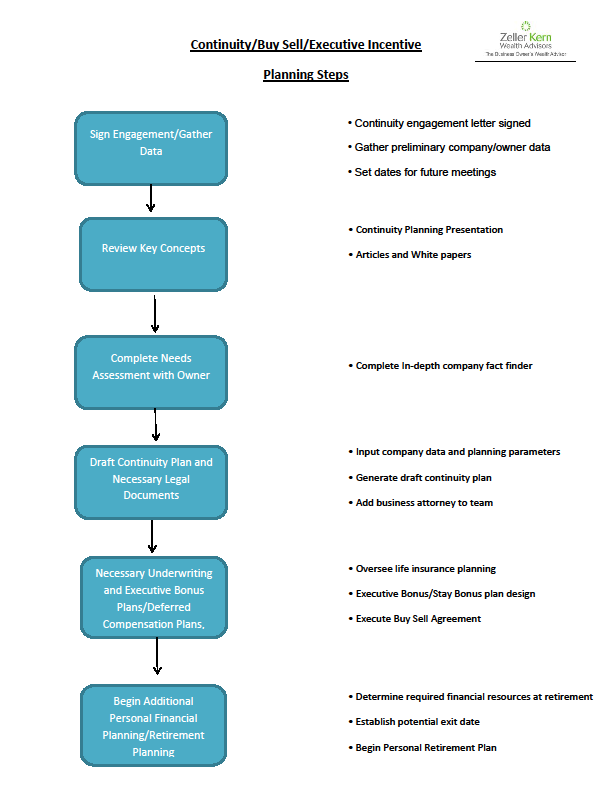 The most commonly stated goals of an exit plan for a business owner are to exit their business on their terms, to receive the highest possible value (or their desired value), and to do so in the most tax efficient manner. It takes time to implement the process to accommodate those objectives. When a business owner rushes to sell their business many things can be overlooked including how to set up the exiting transaction in a way that minimizes taxation.
The most commonly stated goals of an exit plan for a business owner are to exit their business on their terms, to receive the highest possible value (or their desired value), and to do so in the most tax efficient manner. It takes time to implement the process to accommodate those objectives. When a business owner rushes to sell their business many things can be overlooked including how to set up the exiting transaction in a way that minimizes taxation.
Particularly in California, state income taxes are excessive in relation to other states, especially compared to states that don’t have any income taxes. For 2020, the top tax bracket for California is 12.3%. Upon the sale of a valuable business, the realized gains can be substantial enough to hit this top tax bracket, especially if the business has a low cost basis. To put it into perspective; if a company is sold, realizing taxable proceeds of $12,000,000.00, the potential taxation in the state of California is approximately $1,476,000.00. That’s a significant amount but, if planned carefully, this potential taxation can be avoided.
Though it is not the only solution for a California business owner, a NING Trust (Nevada Incomplete Gift Non-Grantor Trust) is a tactic that be utilized to avoid California income taxes, if the right conditions are met.
What is a NING Trust?
A Nevada Incomplete Gift Non-Grantor Trust is an irrevocable trust designed to reduce or eliminate the potential State income tax for high income earners or on a significant capital gains on a sale of an asset, and the owner lives in a high income tax state. An irrevocable trust is often a trust to which the assets placed in it are no longer owned by the Grantor (Owner). Therefore, it has a third party trustee, and the trust and the assets in it are considered to be outside of the Grantor’s estate. However, because the NING trust is considered to be trust with an “incomplete” transfer status, it is still in the owner’s estate, but we will get into the benefits of that later. Because it is a Non-Grantor trust, the trust is the entity that pays the income taxes and not the Grantor, or owner of the assets. Because Nevada does not have a state income tax, a resident or a trust in Nevada would not owe income taxes.
A NING Trust is created under Nevada state laws. It is considered to be a “self-settled” trust, which means you are the creator and primary beneficiary of the trust. The NING trust would be utilized if you have a desire to receive distributions from this trust. Furthermore, you could benefit from a “self-settled” asset protection statue of this trust, which the state of Nevada recognizes. Although Nevada isn’t the only state to recognize this statute, Nevada is a very trust friendly state and is convenient for California business owners, which we’ll get into in a moment.
Estate Planning with a NING Trust
For estate planning purposes, it is important to realize that asset transfers into a NING trust is considered to be an “incomplete gift”. Because of this, the assets in a NING trust will be included in the asset owner’s estate and will receive a step up in costs basis at death, if the low cost basis assets are still existing in the trust. But, you will have the benefit of transferring assets into the trust and not be subject to gift taxes. Furthermore, keep in mind, that the NING trust is for income tax strategy purposes and not for estate planning to reduce an estate tax liability.
So here’s the catch. In order to take advantage of a NING trust, the business owner residing in California that is looking to sell their business should first purchase a home in Nevada or another state without income taxes and establish residence there. You will need to definitely work with a business transaction attorney or an estate planning attorney that is well versed in NING trusts.
Later, the shares of the corporation are placed into the NING trust (after it is established), which then the shares of the corporation are then sold to the buyer. The business owner, now a resident of Nevada, can eventually begin to take distributions from the NING trust. You will need to work with a C.P.A. or tax attorney, but some say that after a year or so after the sale, the Grantor can begin to take distributions from the trust.
NING trusts can only own intangible assets, so shares of a corporation or an investment account. But that is okay in this instance, because the shares are sold and then placed into an investment portfolio to continue to grow.
Maintaining Non-Grantor Status
In order for the trust to maintain a Non-Grantor status or not violate the Grantor trust rules (which would make distributions taxable), the Grantor needs to exercise Powers of Appointment or Non-General Powers of Appointment. This means you retain the power to appoint anyone in the world except yourself, your estate, or creditors of your estate. For this discussion, we will refer to the “Inter Vivos Powers of appointment”, or powers during life. In this situation, distributions must be facilitated by a committee of adverse appointees. Second, the distributions need to be made in a non-fiduciary capacity and based on HEMS (Health, Education, Maintenance, and Support). Adverse committee members may include siblings, children, or other relatives that may be beneficiaries. There are many more nuances to these rules, which we won’t get into for sake of time. Besides, an expert attorney will explain all you need to know.
The bottom line is, this trust has a lot of rules and must be carefully written and set up. But it is feasible.
To Summarize, the trust needs to:
1. Be self-settled to give the grantor the ability to receive distributions.
2. Be a non-grantor trust so that the grantor won’t be taxed on the trust income at the rates of their home state.
3. Ensure the grantor be given a non-general power of appointment to direct disposition of the trust.
4. Furthermore, the transfer of the business to the trust would have to be an incomplete gift, includible in the grantor’s estate at their death.
(source: Save State Income Taxes Using a Nevada Incomplete Gift Non-Grantor Trust; Steven J. Oshins, Esq., AEP & Brian J. Simmons, CFP)
There are other solutions other than a NING trust to accommodate a business exit planning strategy. It all depends on the business owner’s situation, and what state they live in or operate the business in.
If you are interested in learning more about these tactics, or would like to see what solution is best for your exit planning needs, feel free to contact me by email: szeller@zellerkern.com.
Steven Zeller is a Certified Business Exit Planner, Certified Financial Planner, Accredited Investment Fiduciary, and Co-Founder and President of Zeller Kern Wealth Advisors. He advises business owners with developing exit plans, increasing business value, employee retention, executive bonus plans, etc. He can be reached at szeller@zellerkern.com

